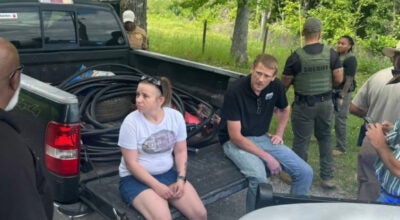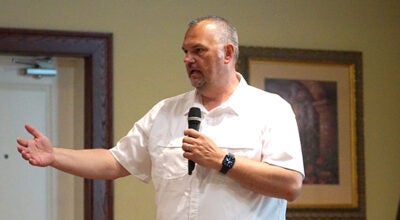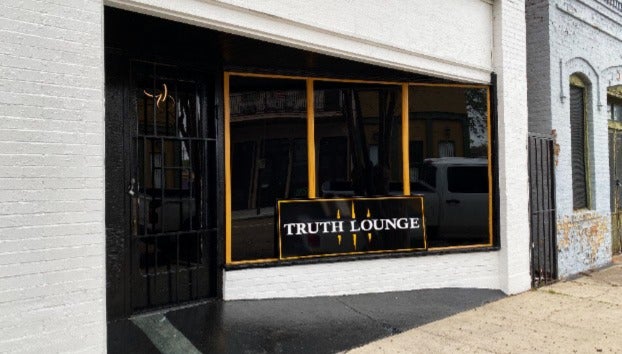Biofuel company coming to Bude area
Published 3:14 pm Thursday, August 26, 2010
Editor’s note:
A statement in the story below about a new biofuel company, KiOR, was unclear.
Currently, KiOR is producing 15 barrels of renewable crude oil, or Re-Crude, a day at its demonstration plant in Pasadena, Texas. The company is expecting to produce 800 barrels of oil a day at its Columbus facility and anticipates producing approximately twice that much at the other two Mississippi facilities in Newton and in southwest Mississippi near Bude. An estimated 20 tons or 100 to 200 truckloads of wet biomass, such as wood chips, will be used at each full-scale facility in one day, depending on the size of the facility. The Democrat regrets the confusion and is happy to set the record straight.
JACKSON — A new biofuel company that converts timber into a crude oil substitute could soon help pump millions into Mississippi’s economy and gasoline into cars.
Gov. Haley Barbour announced at a Thursday press conference that KiOR — a Pasadena, Texas company — plans to open at least three production plants in Mississippi, including one in Southwest Mississippi near Bude.
By combining a new catalyst with 70-year-old technology, one KiOR plant should be able to convert 100 to 150 truckloads of wood into more than 800 barrels of renewable crude oil, or “Re-Crude,” at its facilities in one day, the company’s CEO Fred Cannon said at the press conference.
KiOR would impact the state by investing more than $500 million in its Mississippi facilities and by creating at least 1,000 direct and indirect jobs in the state, Barbour said.
The first facility should be operating in Columbus by the end of next year. Two larger facilities — in Newton County and somewhere within a 20-mile radius of Bude — will open after that, Cannon said.
Officials said the company’s impact could mean hundreds of new jobs in Bude.
Cannon said the company may use railroads, possibly including the 65-mile rail from Natchez to Brookhaven, to transport the final product to oil refineries.
Economically, the company will benefit from using trucks — not rails — to transport timber to the plant near Bude, Cannon said.
After setting up the initial three plants in Mississippi, Cannon said KiOR has prospective plans to add five more plants. Two of the additional plants will be in Mississippi.
These additional locations will be announced after the company has made its final determinations, a governor’s office press release said.
Mississippi was chosen for the development because of the quantity of timber available in the state’s rural areas, the governor said.
Barbour said the state agreed to lend KiOR a $75 million as an incentive.
“This is not a grant, it’s a loan,” Barbour said.
However company will not benefit from any state subsidies in return for gaining flexibility with how they spend the loan.
In addition, KiOR is not able to spend any of the loan money until the company signs a contract with a major oil refinery, Barbour said.
Cannon said he is in the process of finalizing contracts with two major oil-refining companies at this point. He did not specify which companies.
Barbour said he expects the legislature —which will begin a special session to discuss the matter today — to support lending KiOR the money due to the potential of the company’s economic and environmental impact.
Barbour said KiOR is one of the most exciting economic development projects he has been involved with bringing to Mississippi for a few reasons.
KiOR’s process of creating crude oil carries several benefits, Barbour said.
He said the company also gives the United States an opportunity to lessen its dependence on foreign oil.
Cannon said the company’s conversion process produces 20 to 25 percent of the amount of green house gas emissions of traditional means, Cannon said.
Cannon said KiOR has the fortunate distinction of benefiting from rural communities with strong work ethics, such as those communities in Mississippi.
“Most new technologies don’t favor rural communities, but our resources will be in rural areas,” Cannon said.
More information on KiOR is available at www.kior.com.





